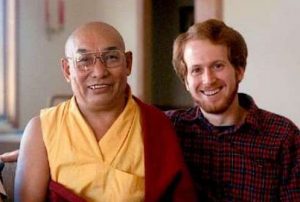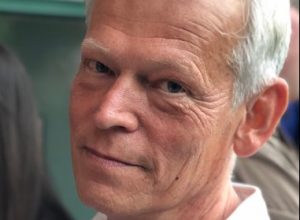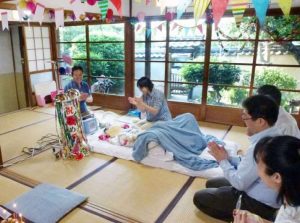
Our modern world, our modern culture has evolved much faster than our hominid brains. As a consequence, for most of us, a simple life is but a romantic dream that remains frustratingly out of reach amid the pressures and complications of everyday existence.
Exhaustion and overwhelm can engulf and enshroud us at any time, for any number of reasons. And sometimes the best thing we can do is cry; a deep, full-bodied sob can be incredibly cathartic. Tears contain hormones—different hormones depending on the reason for the tears. So when aspects of life feel as if they are too much to handle, permitting the tears to roll helps to evacuate stress hormones, which is why we feel better afterward. The human body really is extraordinary.
One source of overwhelm that many people here in the UK and around the world are facing are the new realities resulting from the COVID-19 pandemic.
Each country’s approach to resuming something approaching a pre-pandemic normality has been different. In particular, the UK’s response, a government-led fiasco that has been building over the course of the pandemic, has been as much an irresponsible farce as the individual behavior of government ministers, and continues to be so. The subsequent implications of removing social-distancing sanctions, climbing household energy costs, while morale and money hemorrhage from the pockets of everyday citizens hasn’t been pretty and is leading to a lot of stress for a lot of people.
There was never going to be a free meal after the tickets were handed out during the chaos of the last couple of years. Here in the UK, the government offered the public some financial help as they enforced periodic lockdowns, nevertheless many people still lost much more than their income to the pandemic restrictions. And now many must rise to the challenge of new personal situations, not least as everything handed out has to be repaid—with interest. Perhaps it was simply what had to be done to save lives, but it’s still a bitter pill to swallow when the losses to everyday folk feel like death by a thousand cuts. Meanwhile, the mega-wealthy and powerful continue to write their own rules.
And while all this remains relevant to many at the everyday level, even this broad swathe of suffering pales into insignificance in the face of the tragic conflict and upheaval in the Ukraine. A very concerning trajectory indeed.
Frustration compounding the already stressing issues facing ordinary people simply adds to the deluge of hormones, such as cortisol, that flood our systems and threaten our long-term well-being when they become chronic.
At the best of times, it is definitely in mode to recommend that we practice mindfulness and meditation. As Buddhists, of course, we are taught to look into the causes of our suffering, its impermanence, and ultimately our liberation from illusion and delusion. Yet while these modalities should be practiced, they sometimes don’t actually feel like they help in the face of seemingly overwhelming practical issues that must be addressed. And sometimes they may almost become an excuse to escape.
The stressed brain feeds hormones through the sympathetic nervous system, stressing and fatiguing the entire body. This is one reason that exercise can be so helpful for our emotional well-being. The act of getting the blood pumping helps the brain create new neurons and increases the size of the hippocampus—the area of our memory and learning. And, more importantly I think, an area where depleted cell production seems to lead to depression.
In other words, exercise can act as an antidepressant, which is important when dealing with stressful situations and when our thinking can become muddied and pessimistic. Physical movement releases beneficial neurotransmitters, including dopamine, norepinephrine, serotonin, and acetylcholine, into our system, acting as a mood alleviator and aiding clearer cognitive function. This is important when facing situations that may cause overwhelm.
Even a few minutes a day spent walking up and down stairs or practicing yoga can be invaluable. And I say this from the perspective of someone who often struggles to muster enthusiasm for exercise these days, and would instead quite happily procrastinate by eating something. However, a cup of butterfly pea tea (a source of acetylcholine as well as many other benefits), or some tulsi or holy basil to help calm the system, and a few minutes on the stepper or some of the five Tibetan yoga stretches, and I can already feel real benefits.

Movement aside, the best approach to ameliorating overwhelm, especially from the pressures of enforced change, is to breathe and then list out your pending life matters on paper, arranging them in order of priority. The first thing to address should be anything you might profoundly regret by not taking action. This is particularly in relation to people about whom you care. If spending time with them is possible and ultimately more important than anything else—which is most often is—choose them, as you can never take that time back.
Then spend time bringing order to things that may have significant deadlines. Factor in any projects that are on a slow burn, or hobbies that help you maintain your sanity, so to speak—they can be things done at the end of the day or at the weekend. The important thing is not to shelve things that make you happy.
The act of putting all these things down on paper helps the brain to feel more organized and in control. Now is a good time to start that meditation; I would argue that attempting to meditate prior to writing things down will risk a higher level of scattered monkey brain that’s unable to find peace. Now that you have put your affairs into some sort of order, there is more mental room to relax. Naturally, there are many approaches to the practice of meditation, especially depending upon the intention, but when dealing with change, overwhelm, and exhaustion, a useful meditation is that of dissolving. Called different names by different traditions, I simply refer to this one as recalibrating my frequency so that I can slip into the void of potential between the photons of this perceived reality. Catchy, huh?
Neurologically speaking, relaxing our brain noise—so that the right anterior temporal lobe (ATL), responsible for inspiration and divergent thinking, fires up and pulls abstract information together from deep within the brain by suppressing the left ATL—means that we can have “inspired” thoughts, which can help when we otherwise feel scattered, foggy, stuck, lost, and maybe even panicked. There is increasing evidence, however, that the brain also acts as an antenna, and that physicality has implications beyond our typical perception. As such, by tweaking our dials, we can tune into the calm of potential and open ourselves to options that are not even hidden concepts in the deepest recesses of our brain. This is where we can find answers and interact with the very fabric of reality. So stay in the present, dissolve and remain receptive, and listen without ears.
The beginning of the post-COVID world is arguably a new chapter that many of us are facing. However we choose to face new chapters during the course of our lifetime, and as daunting as some of the implications may be, we can always turn inward to deep breathing as we transgress the boundaries of old comfort zones, organizing ourselves and listing our priorities into bite-sized baby steps, trusting the liminal space and ourselves with the reminder that: “You’ve got this!”
See more
Tilly Campbell-Allen (Dakini as Art)
Related features from BDG
Buddhistdoor View: Afghanistan – Mourning a Global Failure
Buddhist Traces in Afghanistan: Reminiscences of Peace and War
The Price of Speaking Up
Buddhistdoor View: Indigenous Relations – Restoration and Restitution














Easiest way to calm the mind? A good dose of Ravi Shankar or Valayat Khan while sitting staring at the wall. Better than tripping out on acid. Also, get rid of all social media. Only concern yourself with what matters directly to YOU. Go to the source. Read Dogen daily. You can’t take care of others if you can’t take care of yourself.